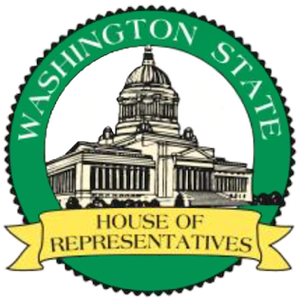The Washington State House Commerce and Gaming Committee (WA House COG) considers issues relating to the regulation of commerce in alcohol, tobacco and cannabis, as well as issues relating to the regulation and oversight of gaming, including tribal compacts.
Public Hearings
- HB 2321 - Reducing youth access to products intended for consumption only by adults age twenty-one and over.
- HB 2350 - Preventing youth marijuana consumption by updating marijuana advertising requirements.
Executive Sessions
- HB 2213 - Modifying Washington state horse racing commission provisions.
- HB 2280 - Authorizing that money laundering forfeited proceeds and property be used for improvement of gambling-related law enforcement activities.
- HB 2281 - Amending types of nonprofit organizations qualified to engage in gambling activities.
- HB 1131 - Allowing residential marijuana agriculture.
